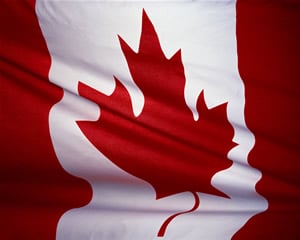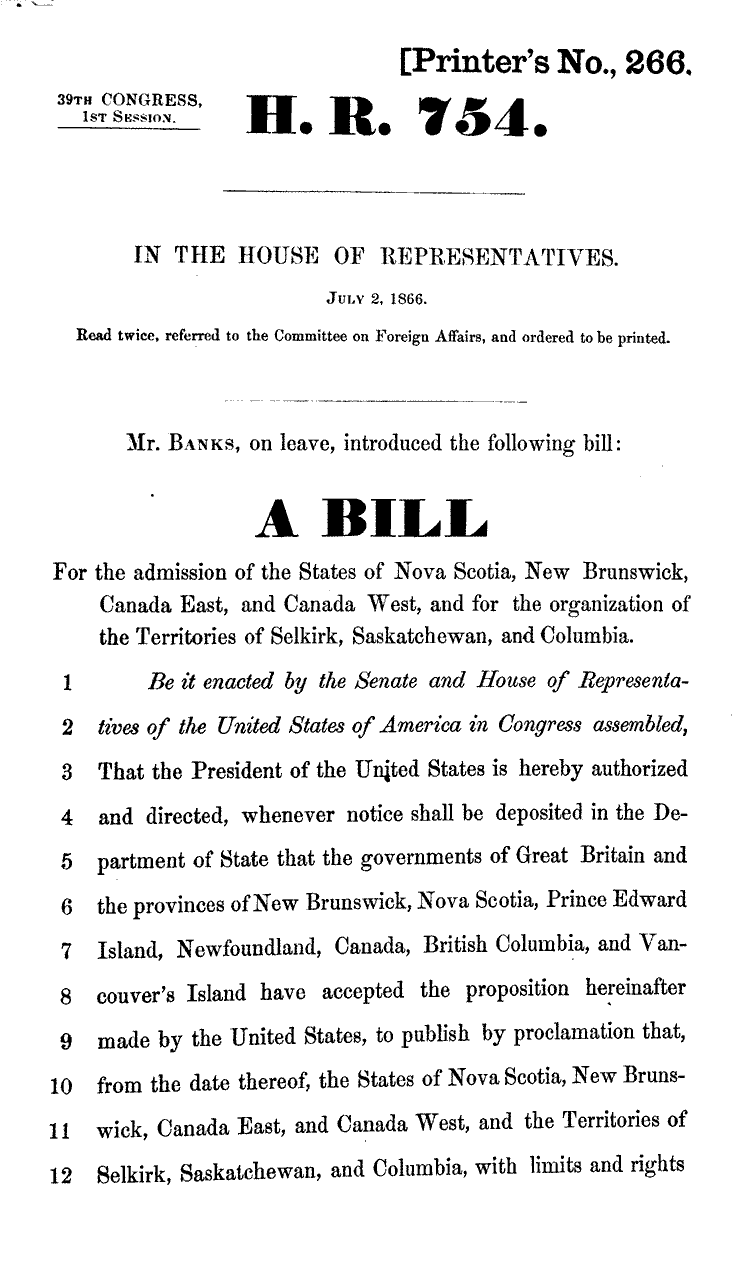Canada: “A Northern Power” Once Again? NAFTA, “A Monstrous Swindle”

In 1854, Canada entered its first free trade (or Reciprocity) treaty with the United States and by 1866 it was clear the Canadian colonies were being absorbed into the US. A bill was introduced in Congress for their admission as “States and Territories of the United States of America.”
In that year, however, the US unilaterally abrogated the agreement. In shock, the Canadian colonies decided to unite and create their own economy — “a northern power.” On July 1, 1867, the Dominion of Canada was born.
In the following decades, under John A. Macdonald’s National Policy, an east-west Canadian economy was fostered, and it prospered. There was no income tax; Georges-Ètienne Cartier, co-founder of Confederation with Macdonald, opposed taxing the population and insisted that government revenue come from duties on imported goods. In 1911, however, Wilfrid Laurier’s Liberals proposed free trade with the US. and Conservative finance critic George Foster warned of “deep danger” ahead. “The best kick that Canada ever had,” Foster said, was abrogation of the 1854 Reciprocity Treaty. “Canadian nationality” began to develop, using “Canadian resources for Canadian developments” and “Canadian routes for Canadian trade.” Then “new blood pulsed in our veins, new hopes… new horizons and new visions.” Canadians voted against the free trade proposal.
 However, in 1988 Canada entered a free trade agreement with the US (FTA) giving sweeping rights to US corporations to buy up most of the Canadian economy and a clause allowing the US a majority of Canada’s total energy supplies even if Canada itself goes short. Canada also committed to never, through any government action, charge Americans more for “any good” exported to the US, than it charges Canadians! In the 1988 election, a majority of Canadians voted for parties opposed to the FTA in what then Prime Minister Brian Mulroney called a referendum on free trade. The people’s verdict was not honoured.
However, in 1988 Canada entered a free trade agreement with the US (FTA) giving sweeping rights to US corporations to buy up most of the Canadian economy and a clause allowing the US a majority of Canada’s total energy supplies even if Canada itself goes short. Canada also committed to never, through any government action, charge Americans more for “any good” exported to the US, than it charges Canadians! In the 1988 election, a majority of Canadians voted for parties opposed to the FTA in what then Prime Minister Brian Mulroney called a referendum on free trade. The people’s verdict was not honoured.
Author David Orchard (right)
In 1992, the FTA was expanded into the North American Free Trade Agreement (NAFTA), which contained a provision allowing US and Mexican corporations to sue Canada for any law or regulation which they think causes them “loss or damage,” and which they feel breaches the spirit of NAFTA.
These disputes are not heard by Canadian judges in Canadian courts, but by special tribunals operating behind closed doors, using not Canadian law, but NAFTA rules. There is no right of appeal. In the 1993 election an even larger majority voted for parties committed to renegotiate or abrogate NAFTA; they got neither. Instead, Canada has been sued thirty-five times by US corporations, reversed several of its laws, paid out $200 million in NAFTA fines — and faces claims for $6 billion more.
Under the FTA/NAFTA, Canada is literally giving away a huge, and increasing, volume of resources across the border, including a record amount of oil at slightly over half world price – and some of the world’s lowest royalties. (One government forecast predicted gambling revenues in Alberta will exceed those from oil royalties, and Ontario, world capital of the mining industry, takes a pitiable mineral royalty of about 1.5%. Reportedly the city of Toronto takes in more from parking tickets than the province does from a swath of mining companies and Newfoundland collects as much from fines and fees on its citizens as from oil royalties.) Meanwhile our standard of living, and real wages, have declined and almost a million Canadians use food banks.
Norway, with less oil than Alberta, voted to stay out of the European Union, had its vote respected — and charges a fair price for its exports. It now has a trillion dollar surplus, while Canada and its provinces, including mineral and oil rich Ontario, Alberta and Saskatchewan, have record debt (over $1.2 trillion) and are desperately offering to sell off profitable public corporations to pay basic bills.
At the same time low interest rates and a low dollar are accelerating the wholesale takeover of iconic Canadian institutions, including our railways, grain, retail, manufacturing and resource companies, into foreign, mostly US, corporate hands.
For 150 years great Canadian leaders have warned that without an economic border, Canada soon wouldn’t have a political border. John A. Macdonald called free trade “veiled treason.” A century later, Pierre Elliott Trudeau called the Canada-US FTA “a monstrous swindle.”
Today a new US president has said he wants to renegotiate or cancel NAFTA. In response, Canadians are being treated to a great wailing and gnashing of teeth by shortsighted leaders, and an alarmist media, about the possibility of “losing NAFTA.” Thoughtful leadership would recognize an opportunity for Canada to stand on its own two feet, step out of the straitjacket of foreign control and build the only economy that offers security and independence — one that is domestically controlled.
Imagine what Canada could be following Norway’s example; no veterans sleeping on our streets, in fact no homelessness, no government debt, free university tuition, money for free dental and child care, and decent old age pensions! And a government that will not allow itself to be sued and ordered about by foreign corporations, but is accountable to the citizens of a sovereign nation.
David Orchard is a farmer and the author of The Fight for Canada: Four Centuries of Resistance to American Expansionism. He can be reached at [email protected]


